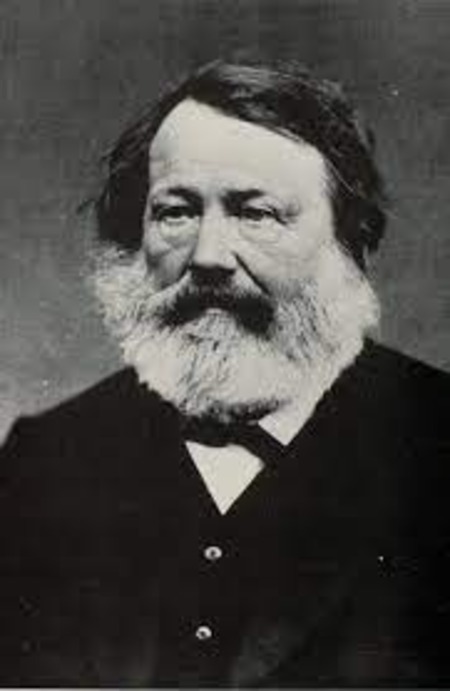
Today’s Leader of Faith
HERMANN GUNDERT
Home Call : 25 April 1893
Missionary, Scholar, Theologian, Linguist, Educator, Editor, Translator, Author.
Hermann Gundert (1814 – 1893) was a German missionary, best known for his significant contributions to the Malayalam language and literature. He lived and worked primarily in Tellicherry (now Thalassery) on the Malabar Coast in present-day Kerala. He compiled the first comprehensive Malayalam grammar book, Malayalabhaasha Vyakaranam (1859), and later produced a Malayalam-English dictionary in 1872, both of which played a foundational role in standardizing the language. He was the one who introduced the punctuation marks – full stop, comma, semicolon, colon, and question mark – into the Malayalam language. He was also actively involved in translating the Bible into Malayalam, thereby making the Scriptures accessible to native speakers and helped establish the first Malayalam school and girls’ institute. Gundert also opened several schools and visited them regularly, inviting teachers for further education. During this time, he published about 13 books in Malayalam and compiled a wealth of linguistic material. Beyond language, Gundert contributed to the fields of history, geography, and astronomy through his writings. Deeply impressed by the natural beauty of Kerala, he coined the famous epithet “God’s own country” during a boat journey from Kunnamkulam to Mangalore. This slogan was used by the Kerala Tourism Department, but others took the credit and gained fame for it. His work on Malayalam is considered monumental, and his archives are preserved at the University of Tübingen.
Hermann Gundert, born on 4 February 1814, was the third child of Ludwig Gundert and Christiana Enslin. His father, Ludwig, was the secretary of the Bible Society in Germany and had started a missionary magazine in 1823, which gave young Hermann his first exposure to printing and publishing. At the age of five, he began his education at a Latin school in Stuttgart. In 1827, he joined the “Lower Seminary” at Maulbronn and later advanced to the “Higher Seminary,” the Protestant Stift at the University of Tübingen. In 1835, he obtained a doctoral degree in philology from Tübingen and successfully completed his theological studies. During his academic journey, Gundert mastered Hebrew, Latin, English, and French at a young age, demonstrating his exceptional linguistic abilities.
Gundert initially traveled to India in 1836 as a private tutor, preparing for the role in England before departing from Bristol. Although his destination was Calcutta, his party arrived in Madras (now Chennai), where he quickly began learning Tamil. While en route, he had already studied Bengali, Hindustani, and Telugu, and even taught them to fellow passengers. He served in Tirunelveli and later in Chittoor, where he married Julie Dubois, a Swiss woman from the same travel group, in July 1838. On their way back to Tirunelveli, the couple joined the Basel Mission in Mangalore. During their travels, Gundert left Tamil materials for printing in Nagercoil and likely heard Malayalam for the first time during a meeting with the Maharaja of Travancore in Trivandrum. In November 1838, Gundert and his wife arrived in Mangalore, traveling to Cannanore (Kannur), Tellicherry, and a cinnamon plantation near Anjarakandy. They lived in Thalassery for around 20 years, where Gundert learned Malayalam from local teachers and consulted them for his works. In 1857, Gundert was appointed the first Inspector of Schools in Malabar and Canara, where he worked on developing the education system, writing textbooks, and compiling examination papers. He is highly revered in Kerala for his contributions to Malayalam language development and cultural studies. His work included compiling grammars for both school and university levels, marking a significant non-Sanskrit-based approach to Indian grammar.
Due to poor health, Gundert left India in 1859 and moved to Calw, in the Black Forest. He joined the Calw Publishing House and became its director in 1862, publishing numerous books, articles, and magazines, including a children’s magazine. Gundert passed away at the age of 79, and was buried in the Calw cemetery alongside his wife, Julie, who died on September 18, 1885. Their family grave still exists. In Thalassery, a statue honors his memory, and the bungalow where he lived became the home of the Nettur Technical Training Foundation for many years. In 2022, the Kerala Tourism Department converted the Gundert Bungalow into a museum dedicated to his life and work.
— John Michael, Rajahmundry
